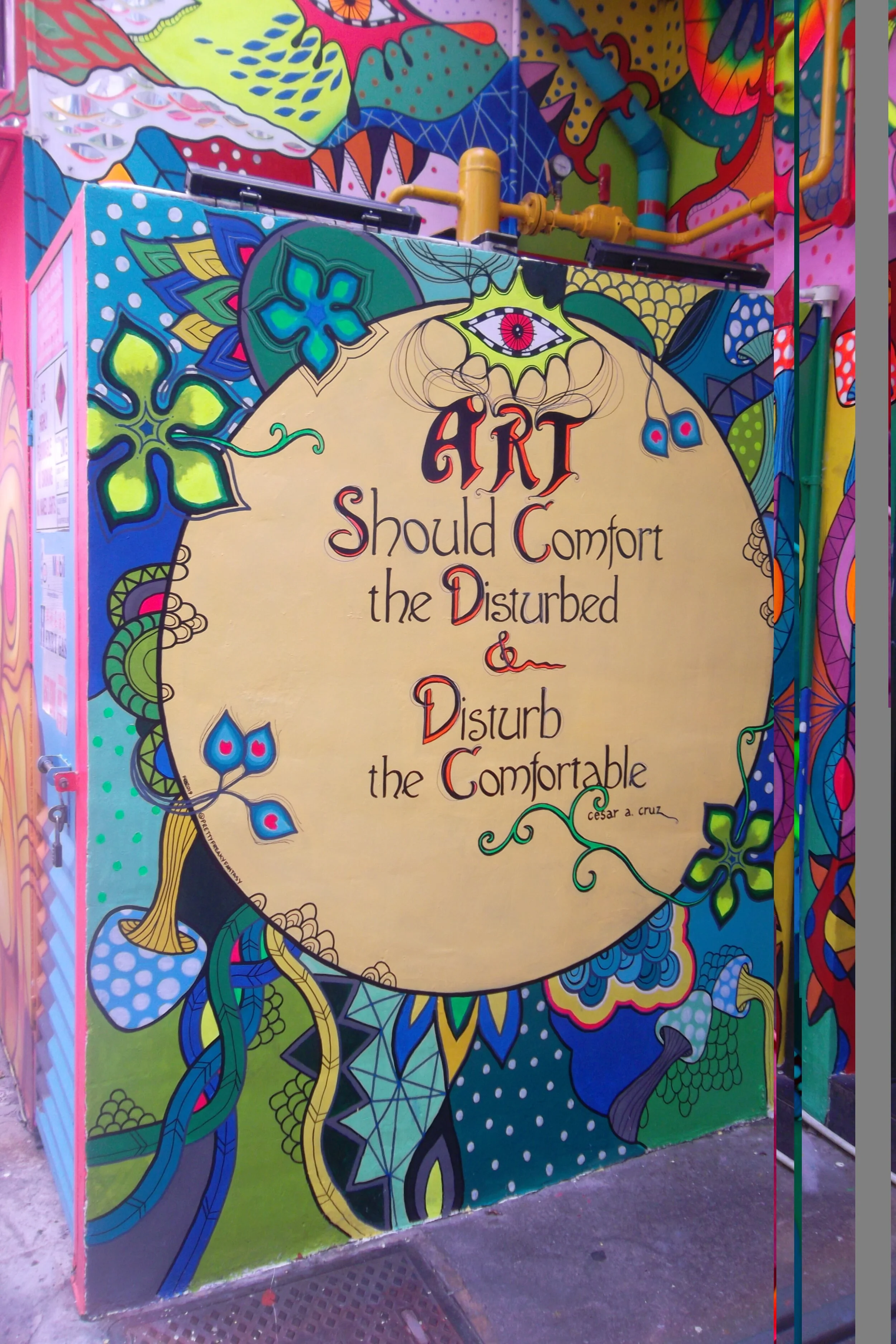Step away from the headphones and your comfort zone....
Photo sourced from Shutterstock on 27 January 2020. Image created by Pewara Nicropithak
My mother was an incredible people person, a bit like a human version of a Labrador. She was only too happy to bounce up to strangers and say hello much of the time. As teenagers, it was embarrassing to a degree, but now I can appreciate it. As a nurse, she learnt to make small talk, and it became second nature to her. My point here, though, is that this is a learned skill. Mum was actually shy as a child and teenager, as was I. But after moving around a lot, I've learnt the value of breaking the ice.
The line in this article (https://www.theguardian.com/lifeandstyle/2020/jan/06/talk-to-stranger-loneliness-loner-chatty-cafe) about headphones caught my attention and inspired this post. Of course you'd remove them if you want to look approachable, but to be fair to the author, he’s grown up in a world where it requires conscious thought to realise this. As for the Chatty Cafe scheme, I think it doesn't work all that well because it announces "I'm lonely" about whoever sits at that table - and doing so takes a lot of courage.
For me, though, the mention of the cocoon in the last paragraph is the important thing. Headphones, smartphones, and many other devices allow us to take the easy way out. We have a society now terrified by boredom, and indeed by the idea of silence.
What is the cost of never being bored or uncomfortable?
There’s another aspect to this which perhaps doesn’t get much of a look-in. As a child, I sometimes had to sit and make conversation with an adult guest. It was often hard work, because apart from knowing most adults worked (and that many didn’t like it much), I didn’t know how adults felt about life.
At the time, I didn’t much enjoy it, and wondered why my mother put me through this. However, she stood firm, saying that making conversation would be an important skill I’d need as an adult. I would often find myself having to pass the time with people I didn’t know, and that it was an important part of hospitality.
However, despite the discomfort (often in both directions, no doubt), it was a really useful learning experience. It taught me to pay attention for verbal and non-verbal cues, and it was a pleasure to find a topic that worked for both people in the conversation. More than that, it led to surprises, and an appreciation that everyone has a story. I discovered that some of these older people had travelled to amazing places, or done things I’d never have imagined them doing.
I wonder if people learn (or have forgotten) how to do this anymore? So many adults I run into are incredibly weak at conversation, and retreat into the safety of staring at their phones. Yes, silence can be uncomfortable, and of course we are not going to hit it off with everybody. But looking at our phones has two effects. First of all, it makes the person you were talking to feel lonely – as though they are not worth your time…and that’s a terrible thing to feel. Secondly, you lose the opportunity to actually discover what this person has to offer. There may be an amazing friendship just waiting to bloom- but you will only find out if you make the effort.
However, having the skill set doesn’t guarantee that all social occasions will be smooth sailing. I attended a catch-up party for a friend around 2 years ago, and he told me there were around 40 people attending. I looked forward to meeting some funny and interesting people. Well, it was one of the hardest social nights I’ve ever been to. Many of them knew one another, and despite the fact I moved tables four times over the space of 2 hours, no-one in the entire crowd made any effort beyond the bare minimum to talk to me. Once they’d pegged that I didn’t offer them any social status or career advancement opportunities, they turned away from me to talk to each other.
I went home that night feeling angry and frustrated. On waking in the morning, though, I realised there was a silver lining to this. While my friend himself remains an amazing, thoughtful and genuine person, I’d skip any future large gatherings with that group of people. And what a relief to know I didn’t have to mix with such people on a regular basis!
The flip side of this is that I think it becomes a self-fulfilling prophecy. People become boring to each other precisely because none of use our conversation muscles. As a result, we never get past the awkward stage with each other. Ironically, many of us then wonder why the world beyond our phones is so boring without ever wondering if we are part of the problem. But we’re not into introspection, because that would be uncomfortable, and that’s something our culture shies away from.
The impacts of not using our “conversation muscles”
I also wonder if this process of disengagement with others is having wider domino effects. Think of the most interesting people you know. Do they spend most of their time on their phone, or are they smiling and engaging those around them? I’d argue that many (not all) of these people are extroverts – they thrive on engaging with others. And in the digital era, I’d argue that many of these people are reaping outsized social benefits as a result.
The rest of us? Well, if we haven’t learnt how to be the centre of the crowd, then in the digital world, we barely register. It’s not that we aren’t interesting (as I said earlier), but in such a noisy and distracted world, we don’t hold people’s attention for long enough to show them what we have to offer.
Most of us fall between one pole and another on this. Many of us are social chameleons – good in some settings, but awkward in others. I think, however, that much of this comes back to social class. If you are broadly socially confident, then you know how to read crowd, and what level to pitch your conversation at for the audience. If you lack education, however, then your array of social tools is probably much more limited…perhaps something like a piano with broken keys that can only play a few notes.
In the digital era when soft skills are becoming increasingly important, where does that leave people who never learn to look up from their phones? What are we doing to our teenagers by flooding their minds with dopamine all of the time? It’s not that these people lack the capacity to express themselves – but maybe we are robbing them of the time and opportunity to flex their conversation muscles…and doing them a huge dis-service as they move into adulthood.
What do you think?







